 by our College Data Analytics Team
by our College Data Analytics TeamWe've pulled together some essential information you should know about the program, including how many students graduate each year, the ethnic diversity of these students, and more. In addition, we cover how Wazzu ranks in comparison to other schools with conservation programs.
Jump to any of the following sections:
The conservation major at Wazzu is not ranked on College Factual’s Best Colleges and Universities for Natural Resources Conservation. This could be for a number of reasons, such as not having enough data on the major or school to make an accurate assessment of its quality.
During the 2021-2022 academic year, Washington State University handed out 21 bachelor's degrees in natural resources conservation. This is an increase of 133% over the previous year when 9 degrees were handed out.
In 2022, 7 students received their master’s degree in conservation from Wazzu. This makes it the #112 most popular school for conservation master’s degree candidates in the country.
In addition, 4 students received their doctoral degrees in conservation in 2022, making the school the #33 most popular school in the United States for this category of students.
Out-of-state part-time undergraduates at Wazzu paid an average of $1,382 per credit hour in 2022-2023. The average for in-state students was $578 per credit hour. The average full-time tuition and fees for undergraduates are shown in the table below.
| In State | Out of State | |
|---|---|---|
| Tuition | $10,976 | $27,052 |
| Fees | $2,021 | $2,021 |
| Books and Supplies | $762 | $762 |
| On Campus Room and Board | $13,131 | $13,131 |
| On Campus Other Expenses | $3,642 | $3,642 |
Learn more about Wazzu tuition and fees.
Of the 21 students who earned a bachelor's degree in Natural Resources Conservation from Wazzu in 2021-2022, 62% were men and 38% were women.
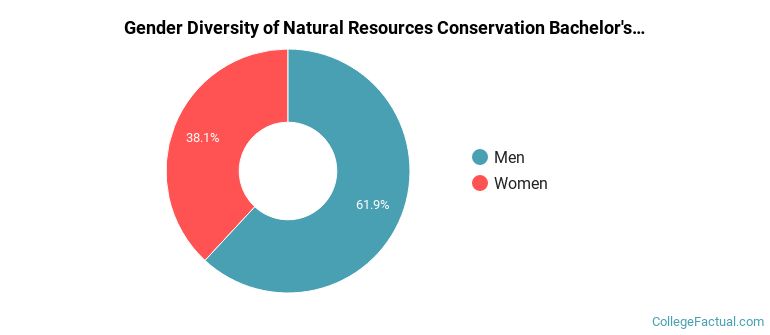
The following table and chart show the ethnic background for students who recently graduated from Washington State University with a bachelor's in conservation.
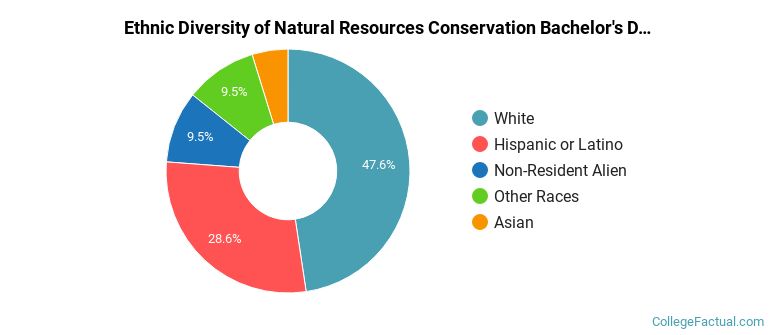
| Ethnic Background | Number of Students |
|---|---|
| Asian | 1 |
| Black or African American | 0 |
| Hispanic or Latino | 6 |
| White | 10 |
| Non-Resident Aliens | 2 |
| Other Races | 2 |
Online degrees for the Wazzu conservation bachelor’s degree program are not available at this time. To see if the school offers distance learning options in other areas, visit the Wazzu Online Learning page.
Graduates of the master's conservation program at Wazzu make a median salary of $56,115. This is a better than average outcome since the median salary for all conservation graduates with a master's is $55,058.
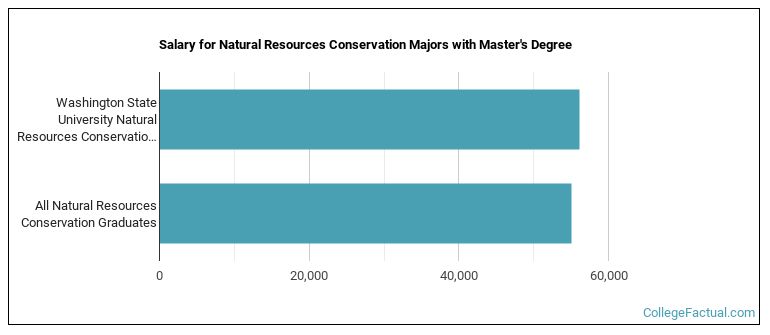
Of the 16 conservation students who graduated with a master's degree in 2021-2022 from Wazzu, about 50% were men and 50% were women.
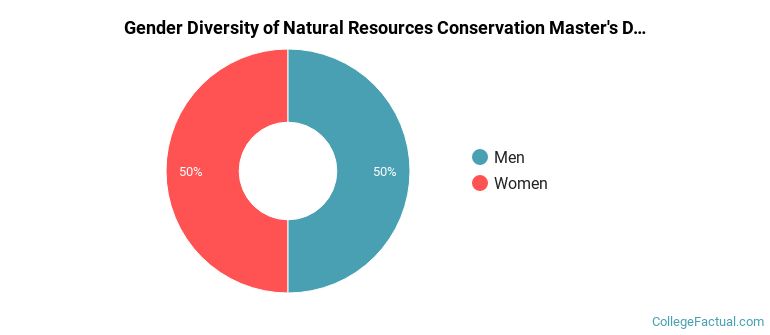
The majority of the students with this major are white. About 88% of 2022 graduates were in this category.
The following table and chart show the ethnic background for students who recently graduated from Washington State University with a master's in conservation.
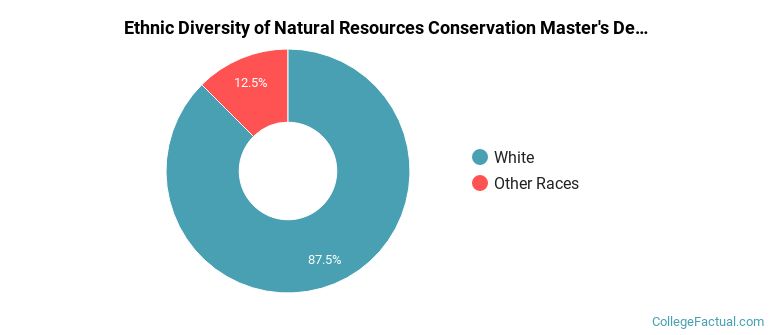
| Ethnic Background | Number of Students |
|---|---|
| Asian | 0 |
| Black or African American | 0 |
| Hispanic or Latino | 0 |
| White | 14 |
| Non-Resident Aliens | 0 |
| Other Races | 2 |
Take a look at the following statistics related to the make-up of the conservation majors at Washington State University.
| Related Major | Annual Graduates |
|---|---|
| Forestry | 6 |
More about our data sources and methodologies.